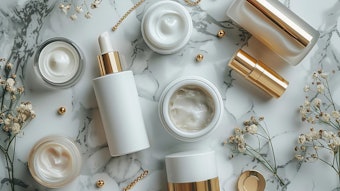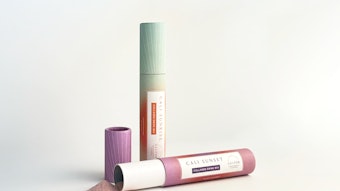The discovery of a "Decade of Delight," which describes consumers' key brand expectations, was the critical finding in last year's annual Brand Keys report. This year, Brand Keys’ Customer Loyalty Engagement Index (CLEI) report, conducted by the New York-based brand and customer loyalty and engagement consultancy, offered continued mounting evidence that it is indeed delight that defines the consumer relationship with brands in the beauty/personal care products category.
For all 50 brands tracked in the report’s beauty/personal care products category, attributes relating to self-image and brand image are exerting the strongest impact on customer decision-making, category-expectations and engagement with brands.
While expectation levels for delight vary by category, brands in the category that were best at creating customer delight are:
- Breck (hair shampoo)
- Clairol (hair color)
- Clinique (luxury cosmetics)
- Elizabeth Arden (luxury facial moisturizer)
- L’Oréal (facial moisturizer)
- Mary Kay (cosmetics)
- Maybelline (cosmetics)
- Pantene (hair shampoo)
- Pantene (hair conditioner)
“Consumer expectations have been accelerating for some time,” said Robert Passikoff, president, Brand Keys. “Many industry pundits have looked at the pressures on price and drew the erroneous conclusion that brands have lost their value. Quite the opposite is true. Real brands are more valuable than ever. We need only look to the continuing success of luxury brands as evidence. Brands that lack meaningful differentiation are being punished by the economic and behavioral shifts, becoming ‘category placeholders’ because consumers do not look for commodities in their search for delight.”
As Consumers Change, Categories Change—Brands Must Change
“Brand Keys’ CLEI data predicts emerging trends in the consumer marketplace. Every category we can compare to last year shows a rise in either the importance of or increased expectations when it comes to the brand-based attributes that most strongly impact the customer experience. In short, things that generate delight”, noted Passikoff. “Given the levels of commoditization we’ve witnessed in product/services and pricing/promotion strategies, it’s no surprise consumers are looking to strong brands to offer a difference. Consumers know the brands, know what they do, and know what they’re willing to pay. Satisfaction has never been more cost-of-entry while delight is the new differentiator.”
“Experience is key, whether it's experience with products themselves, or how products are put into the hands of consumers from rapid delivery to product introductions including the after-life of service and support that the consumer experiences. Consumers want a higher level of experience,” Passikoff continued. “This year consumers’ skyrocketing desire for experience and authentic brand values are exerting the strongest impact on customer decision-making and profitable engagement with brands. Brands that can meet, or exceed, consumer expectations become category leaders. This only matters, of course, if marketers keep score by counting sales and profits, not by merely tracking awareness levels.”
Brands That Delight the Consumer
Beauty and personal care product brand loyalty and engagement rankings for 2012:
Cosmetics
- Mary Kay/Maybelline (tie)
- L'Oréal/Sephora (tie)
- CoverGirl/Neutrogena (tie)
- Revlon/Coty (tie)
- Avon
- Max Factor/Rimmel (tie)
- Almay
Cosmetics (Luxury)
- Clinique
- Lancôme
- Chanel
- Estée Lauder
- Shiseido
Facial Moisturizer
- L’Oréal
- Avon
- Mary Kay
- Ponds
- Olay
- Neutrogena
- Nivea
Facial Moisturizer (Luxury)
- Elizabeth Arden
- Lancôme
- Chanel
- Clinique
- Estée Lauder
- Clarins
- Shiseido
Hair Color
- Clairol
- L’Oréal
- Revlon
- Garnier
Hair Conditioner
- Pantene
- Herbal Essences
- Suave
- Aveda/L’Oréal (tie)
- Neutrogena
- Garnier
Hair Shampoo
- Pantene/Breck (tie)
- Organix
- Herbal Essences
- Garnier
- Suave
- Dove
- L’Oréal
For the Brand Keys 2012 survey, 49,000 consumers, 18 to 65, drawn from the nine U.S. census regions, self-selected the categories in which they are consumers, and the brands for which they are customers. Seventy-five percent (75%) were interviewed by phone, 20% via face-to-face interviews (to account for today’s population, who are cell phone-only consumers), and the remaining consumers assessed categories and brands online.
“At a time when brands are struggling to differentiate themselves and to find ways to profitably engage with customers, the changes in the 2012 Brand Keys’ CLEI serve as a benchmark for marketers. Products and services that respond with a meaningful consumer-centric view of their category—delighting the customer based on predictive loyalty metrics—stand to gain the most, and will establish themselves as this decade’s brand leaders,” concluded Passikoff.
The complete listing of the 83 category rankings can be found at Brand Keys.










